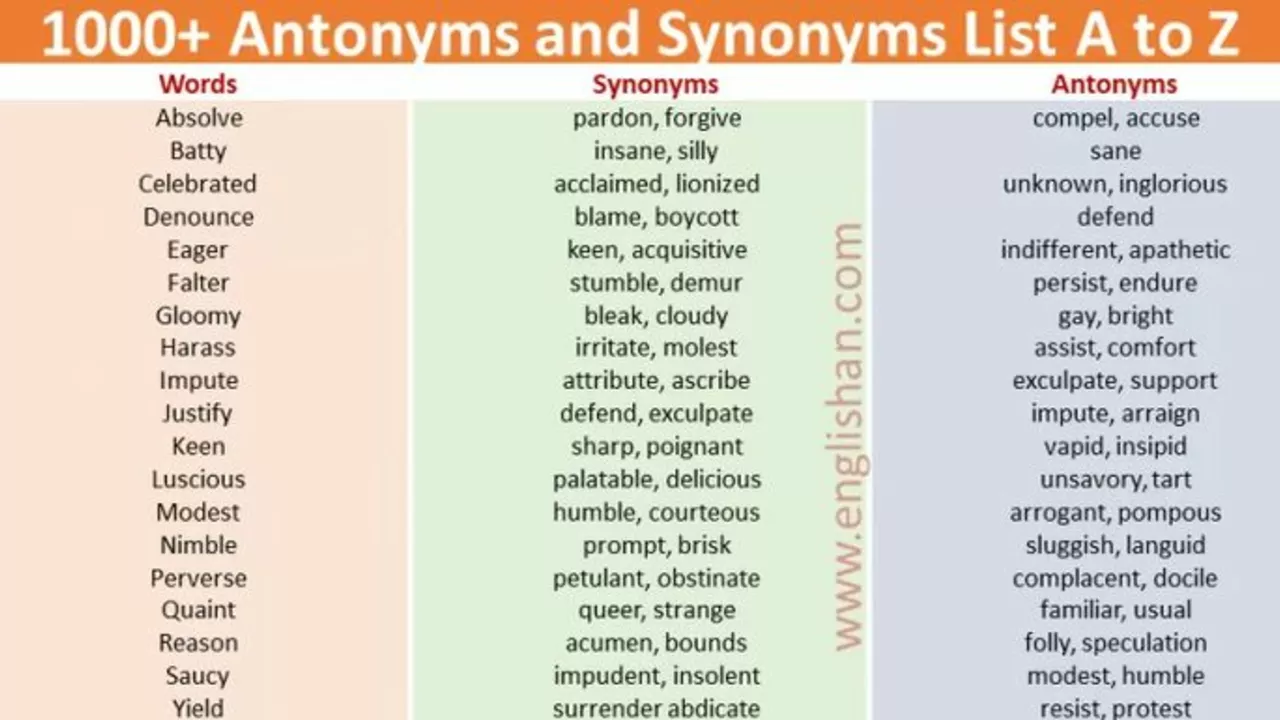Language and Linguistics Made Simple for Everyday Use
Ever wonder why we pick certain words over others? Or how language shapes the way we think? In this space we break down those big ideas into bite‑size, useful advice you can use right now. No jargon, just clear tips that help you talk, write, and think better.
Why Language Matters in Daily Life
Language is the tool we use to share ideas, solve problems, and connect with people. When you understand a few core concepts of linguistics—like how sounds form words or why some phrases feel natural—you can choose words that fit the situation perfectly. For example, swapping "feasible" for "doable" or "practical" can change the tone of a sentence without losing meaning.
That’s exactly what our recent post on synonyms for "feasible" shows. It lists easy alternatives like "possible," "achievable," and "realistic," and explains when each works best. Knowing these options lets you avoid repetition and keeps your writing fresh.
Practical Ways to Grow Your Vocabulary
1. **Read with a purpose** – Pick a short article or a blog post, underline any word you don’t know, then look it up. Write down the definition and one new sentence using that word.
2. **Play word‑swap games** – Take a sentence you use often, like "That plan is feasible," and replace the key word with a synonym. Notice how the feel changes. Try "That plan is doable," then "That plan is realistic." Each version tweaks the nuance.
3. **Use flashcards wisely** – Instead of cramming dozens of words, focus on a handful each week. Include the word, its meaning, a synonym, and a real‑life example. Review them daily for a few minutes.
4. **Talk it out** – When you learn a new word, say it aloud in a conversation. Using it in speech reinforces memory faster than just reading.
These simple habits fit into a busy schedule. You don’t need hours of study; just a few minutes each day can add up to a richer vocabulary.
Beyond building word lists, a quick peek into linguistics can boost your confidence. Understanding why we use certain verb tenses or why questions often start with "who" or "what" helps you spot patterns. When you recognize a pattern, you can apply it to new situations without second‑guessing.
So, next time you’re drafting an email, chatting with friends, or posting online, ask yourself: "Is there a clearer, more natural word I can use?" Try swapping a common term with a synonym you just learned. You’ll notice your language feels sharper, and readers will respond positively.
Stay curious, keep experimenting with words, and remember that language isn’t a fixed set of rules—it’s a living tool you can shape. Check back for more guides on synonyms, tricky grammar spots, and fun linguistics facts that make everyday communication easier and more enjoyable.

What are some synonyms for 'feasible'? - English words?
In the vast world of English vocabulary, there are several synonyms for the word 'feasible'. These include 'possible', 'doable', 'achievable', and 'practical', among others. Each of these words carries the same core idea of something being capable of being done or carried out. So, next time you're looking for a way to say that something is feasible, remember that there's a whole list of alternatives at your disposal!